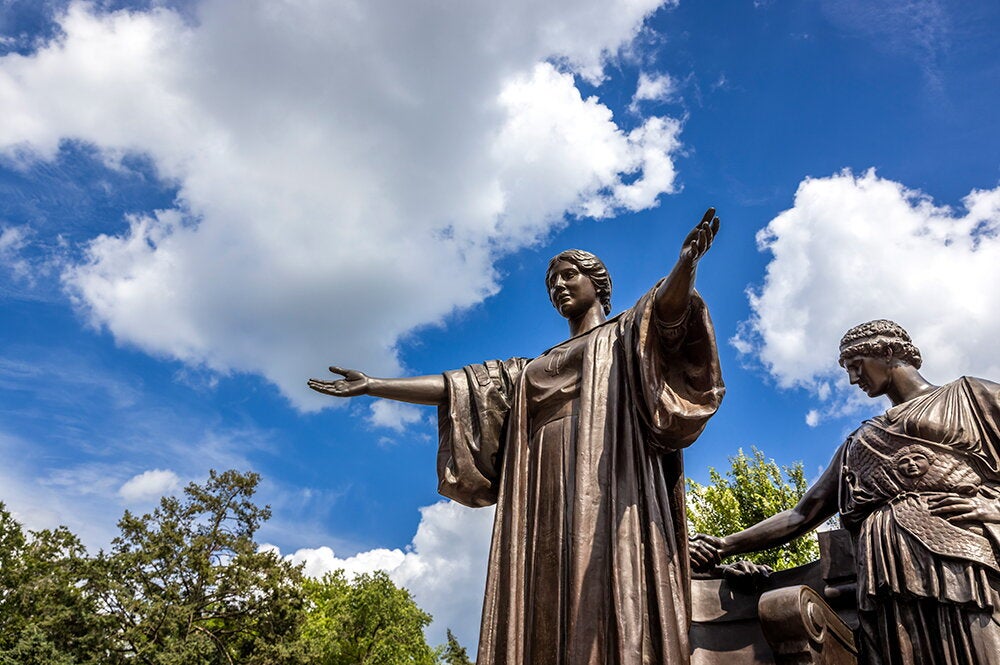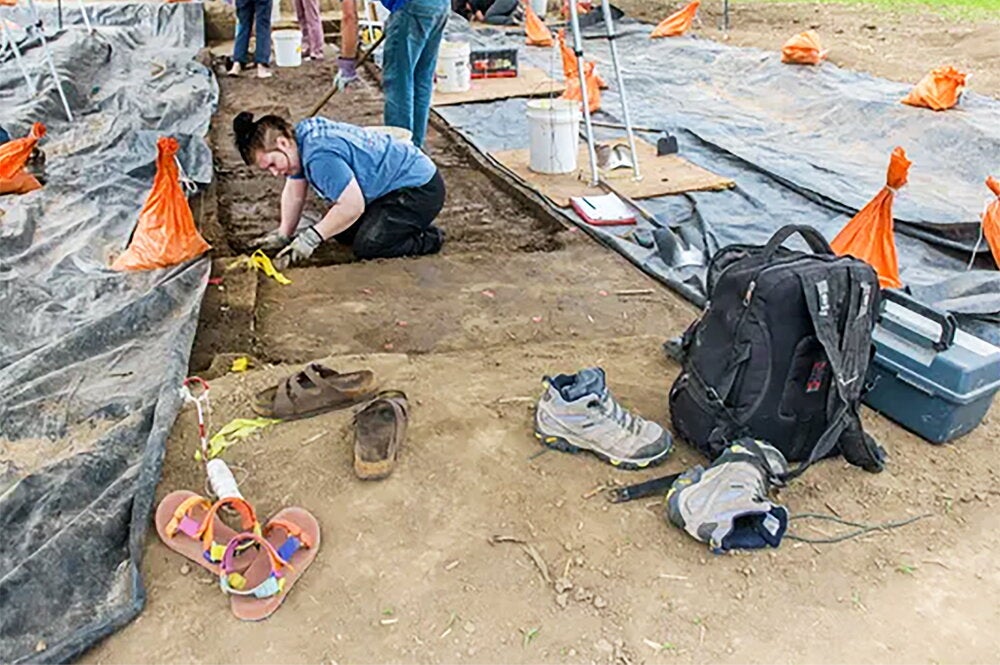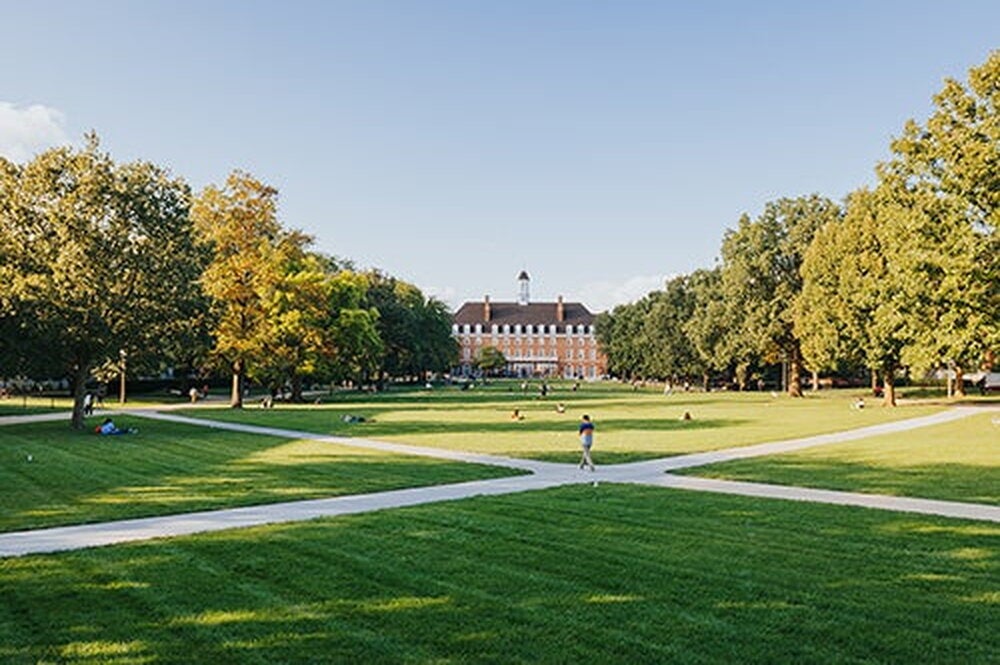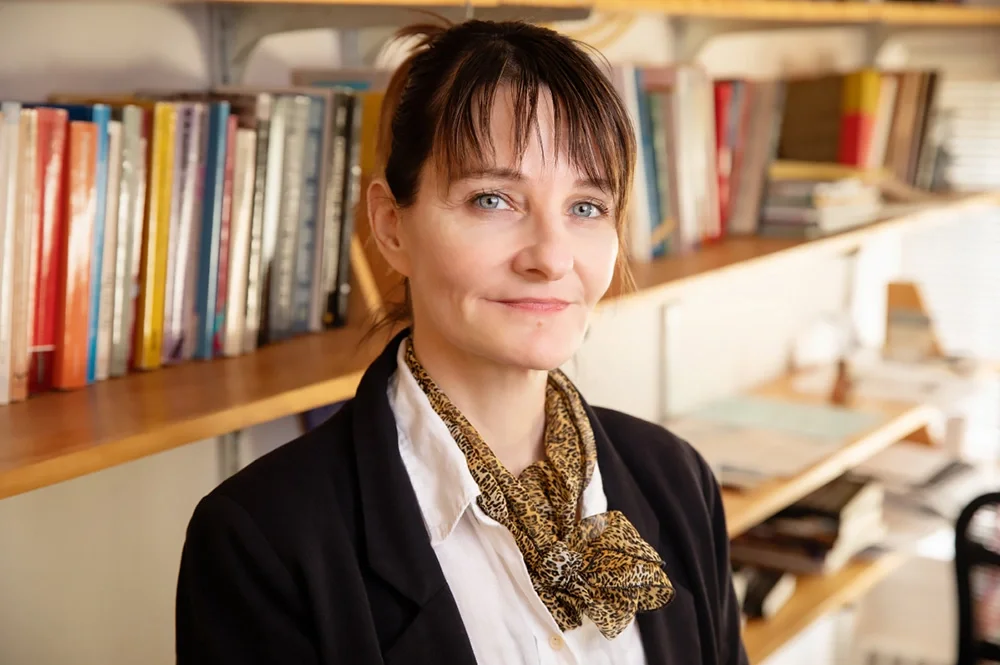
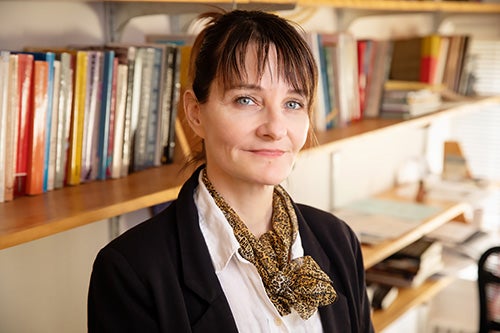
On March 15, more than 200 Venezuelan immigrants were accused of engagement in gang activity and deported from the U.S. — not to Venezuela, but to El Salvador, some 1,600 miles away from their home country. Ellen Moodie, an anthropology professor at the University of Illinois Urbana-Champaign, is the author of “El Salvador in the Aftermath of Peace: Crime, Uncertainty, and the Transition to Democracy,” as well as the forthcoming “Indignant Liberalism: Protest, Political Change, and El Salvador’s Post-postwar Generation.” She is a frequent expert witness in U.S. immigration courts. She spoke with News Bureau life sciences editor Diana Yates about the choice to send the prisoners to El Salvador.
How has the U.S. administration explained its decision to send so many Venezuelan immigrants to El Salvador?
The sudden deportation was, as the U.S. government described it, a response to an invasion of the country — indeed a war — by members of the Venezuelan gang Tren de Aragua. The day before the deportation, President Donald Trump invoked the Alien Enemies Act, a 1798 law that gives the president the power to detain and deport noncitizens. Trump declared that the gang “is perpetrating, attempting, and threatening an invasion or predatory incursion against the territory of the United States.”
Before March, the AEA had never been used without a Congressional declaration of war. During World War II, President Franklin D. Roosevelt invoked the act after the bombing of Pearl Harbor and issued an executive order that led to the internment of 120,000 Japanese Americans, many of them U.S. citizens.
In the current situation, U.S. government officials later said that 137 of the passengers on those March 16 planes to El Salvador were subject to the act and the others were removed under “regular” processes.
Why El Salvador? Salvadoran President Nayib Bukele, an authoritarian populist unconstitutionally re-elected last year, offered his notorious prisons to Secretary of State Marco Rubio when Rubio visited in February. Bukele said El Salvador would receive and detain people deported from the U.S. — as well as U.S. citizens convicted of crimes. The Trump administration took him up on the offer, paying $6 million to hold the Venezuelans for a year.
How have the courts weighed in on the constitutionality of the move?
As we know, a U.S. judge issued a temporary restraining order blocking the use of the Alien Enemies Act in this case, a ruling upheld by an appeals court on March 26, the same day U.S. Secretary of Homeland Security Kristi Noem visited El Salvador’s high-security Center for Terrorism Confinement, known by its Spanish acronym, CECOT. That’s where the deportees have landed.
What conditions are the detainees experiencing?
After being stripped and shaved, the deportees were placed in 80-man cells, with “steel planks for bunks, no mats, no sheets, no pillow,” as described by photojournalist Philip Holsinger for Time magazine. They are often denied rights to food, sanitation, and health.
It has become clear through interviews with family members that many Venezuelans were arrested merely for being non-U.S.-citizen men with tattoos. Experts say Tren de Aragua does not use tattoos to identify its members. A lawyer for a firm representing about 30 of the Venezuelans said they aren’t gang members and have no criminal records.
Please describe El Salvador’s history of observing — or disregarding — basic human rights, including the right to a fair trial before imprisonment and lawful detention.
The Salvadoran state has a long history of human-rights abuses, especially during the 1979-1992 civil war, in which at least 75,000 people died. Peace accords signed in 1992 promised to address some of the problems in the country of 6 million. The United Nations installed an observer mission in the country and appointed a truth commission to document human-rights abuses during the war, but the state quickly granted amnesty to the perpetrators named by the commission. In the years after the war, gaps in the state’s authority and the rise of gangs in the country lead to increasing violence. By 1995, it had one of the highest murder rates in the world, a record matched again in 2015.
On March 27, 2022, 87 Salvadorans were killed in one weekend of gang-related violence. The legislature, dominated by supporters of President Bukele, imposed a state of emergency. Salvadoran police and military were deployed across the country in a massive “campaign to arrest anyone who has, has had, or may have had a link with gangs.” The emergency declaration has been renewed 36 times in 30-day segments as required by Salvadoran law.
At least 85,000 people have been arrested without judicial warrants. Constitutional guarantees and fundamental rights, including the right to due process as well as freedom of expression and association have been suspended for everyone in the country. The murder rate has plummeted, though we don’t know the numbers since there is no government transparency.
El Salvador now has the highest incarceration rate in the world, with 2% of the population in prison. At least 367 have died in prison, due to harsh conditions and torture. Those who survive will likely be prosecuted in mass trials of hundreds of people at a time, with judges whose identities will be kept secret.
Your research often focuses on the aftereffects of war in El Salvador and elsewhere. How has Salvadoran society been shaped by these events?
The most striking “aftermath” of the civil war in El Salvador has been the rise in social violence, indexed in rising homicide statistics. Murder rates were at epidemic levels for 30 years. The rise of the two most powerful gangs, the Mara Salvatrucha and Pandilla 18, can be linked to mass deportations of gang members from the U.S. to El Salvador starting in the mid-1990s. Both gangs were originally founded in Los Angeles, California.
Bukele, like his predecessors, promised to crack down on gang violence, but there is evidence that he, like past governments, made secret pacts with gangs to reduce murder rates. Reportedly, gang leaders ordered the rash of killings three years ago because they were furious at Bukele’s betrayal of one of their agreements. That’s when Bukele directed the legislature to impose the “state of exception” that has now lasted three years.
El Salvador has had a rocky historic relationship with the U.S. Does this new agreement portend a new era in relations between the two countries?
Bukele and Trump have much in common. Bukele’s tweet “oopsie — too late,” after the U.S. judge’s restraining order that failed to stop the flights on March 15, is a sign of that affinity. The two had already established a relationship in Trump’s first term. Last year, Bukele attended the Conservative Political Action Caucus to much acclaim. Donald Trump Jr. attended Bukele’s unconstitutional inauguration of his second term. Now, with the deal over prisons, Bukele and Trump have become even closer.
What do you expect will happen to these immigrant-prisoners?
The Salvadoran government has described Salvadorans held in CECOT as “terrorists.” It has said that they “will never leave,” according to Human Rights Watch. Indeed, Human Rights Watch is not aware of any detainees who have been released from that prison, most of whom were transferred from other prisons. Salvadoran family members often struggle to find their imprisoned relatives once they have “disappeared” into the carceral system. Similarly, the newly deported Venezuelans can’t be found in U.S. Immigration and Customs Enforcement’s online detainee locator. They do not have consular support from their government, because El Salvador hasn’t had diplomatic relations with Venezuela since 2019, the year Bukele was elected. They have not appeared before a Salvadoran judge. They are, essentially, rightless and stateless.
